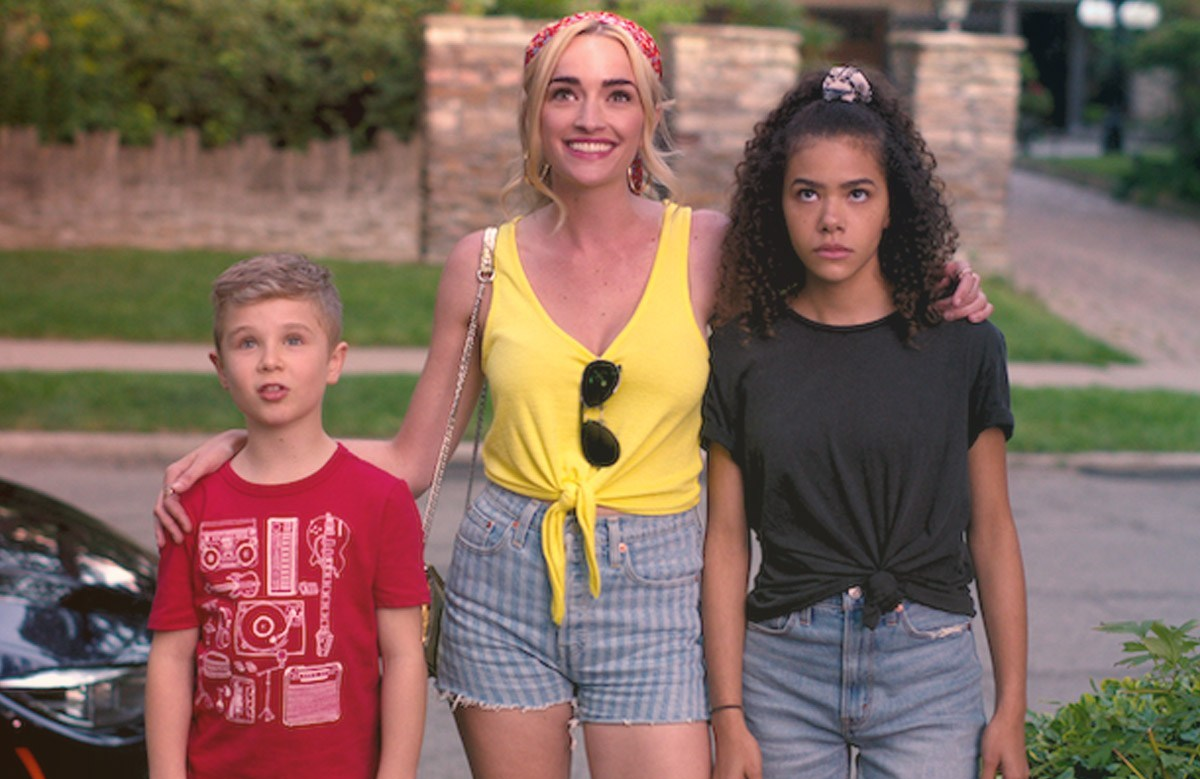Ginny & Georgia Review
The new Netflix original, Ginny & Georgia, has rapidly gained attention from many types of audiences around the world. The show is often renowned for illustrating layers and layers of complex issues while maintaining humor and an intriguing and unpredictable plot. From a crime drama to a teen spectacle to a political dramedy and beyond, this show seems to cover endless bases in order to successfully reach its audience and generate entertainment for ten 50-minute episodes.

Georgia, played by Brianne Howey, moved to Massachusetts for a fresh start with her two kids: Ginny, played by Antonia Gentry, who Georgia had at the age of 15, and Austin, the younger brother who is lovable and socially anxious. Ginny’s father, who keepsin touch with Ginny via phone, is consistently shown in flashbacks of Georgia’s childhood from the day they met, showing the development of their relationship. Austin’s father is serving time in jail for fraud, so he never makes a present-day appearance on the show – just in flashbacks.
Short scenes from Georgia’s past, including an abusive father leading her to engage in a stream of illegal activities, build up to paint a picture of her present-day personality and gilded charm. As Ginny begins her first day at a new high school, the show shifts to a teen drama with the classic themes of romance and popularity, overshadowing the more complex themes of the teen’s biracial identity crisis and self-harm.
Many have compared Ginny & Georgia to Gilmore Girls, a 2000s show with the same baseline plot of a young mom and her daughter. Paolita Cabo Camacho (11), says that she really enjoyed watching Ginny & Georgia because “besides the more modern feel, they also added an unpredictably crazy storyline, which sets it apart from Gilmore Girls.”
![Ginny and Georgia' Recap Season 1 Premiere, Episode 1 — [Spoiler] Sex | TVLine](https://tvline.com/wp-content/uploads/2021/02/ginny-and-georgia-premiere-recap-1.jpg?w=620&h=420&crop=1)
There are, however, some aspects of the show that have led to more discussion on how they could have been better portrayed. For example, Paolita did not like how “teenage mood” is illustrated as almost always having an attitude and “taking it out on themom.” Especially because “the show is intended to show what teens are going through today, and it makes us look like we all blame it on our moms.” And while some teens might, the show seems to show little remorse when depicting Ginny’s temper.
Overall, Ginny & Georgia has its ups and downs, one of the reasons that makes it completely worth the watch. From adolescence to motherhood, this show portrays many aspects of life. Whether you resonate with or learn a whole new point of view from each of its complex characters, Ginny & Georgia will keep you on the edge of your seat – to say the least.







